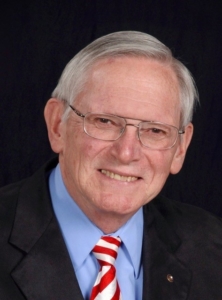2020: Too important to cancel
Capital City Today
By: S.L. Frisbie, IV for Polk News-Sun

S.L. Frisbie IV Florida Newspaper Hall of Fame Member, 4th-Generation Polk County Newspaper Publisher
So many things have been cancelled this year — traditional graduation ceremonies, sports seasons, even conventional funerals — that it has been facetiously suggested that we just cancel the year 2020.
It is a clever line for late night comedians.
But on reflection, 2020 just might be one of the most important turning points of our times.
In mid-March, a pandemic — a word generally consigned to crossword puzzles — of a disease called coronavirus swept the world.
The reaction from the White House was to predict that 15 people would develop the disease, and then a miraculous cure would end the plague overnight.
Instead, we learned to quarantine in our homes as more than 110,000 fellow Americans died.
When it seemed that things could not get worse, a police officer in Minneapolis killed a man accused of making a purchase with a counterfeit $20 bill, causing his death by kneeling on his neck for eight minutes and 46 seconds.
The racial realities — the victim was black, the officer was white — guaranteed a nationwide assumption that there was an element of race-inspired police brutality.
Even law enforcement leaders — including Polk County’s Sheriff Grady Judd — declared the obvious: that there was no justification for the fatal force employed.
The predictable demonstrations by outraged Americans of all racial and ethnic backgrounds broke out, and in several cities, political, law enforcement, and National Guard leaders marched in solidarity with the demonstrators. It was, in my memory, unprecedented.
At a time when we were encouraged to stay in our homes, or to wear masks and exercise “social distancing” to prevent the spread of the coronavirus when we ventured outside, thousands upon thousands of demonstrators marched shoulder to shoulder in dozens of American cities. It was a classic example of a perfect storm.
As is too often the case with events that start as peaceful protests, rioters took advantage of the occasion to loot and burn.
Florida’s government couldn’t even figure out how to distribute unemployment checks.
Americans learned that something called a choke-hold to immobilize a suspect should be banned, and that body cameras are essential tools in recording both abuse and heroism by law enforcement officers.
The president’s threat to mobilize the Army to restore order was soundly attacked by retired four-star generals.
His photo op clutching the Bible as if it were the banner of his favorite football team was lampooned from shore to shore and beyond.
So should we cancel 2020?
Anything but!
As a journalist, you face the reality that today’s brilliantly-crafted story will be forgotten in a day or two. News has a short shelf life.
In my own journalistic career of 50 years or so, one of the few breaking stories that I covered that I believed would survive this reality was the infancy of the Civil Rights movement, which I helped cover in Tallahassee.
The lunch counter sit-ins by college students in 1960 might not have lasting impact, I believed.
But when a busload of Freedom Riders — clergymen of both races from Protestant, Catholic and Jewish faiths — arrived at Tallahassee’s two bus stations in 1961, I sensed that this was the start of something big.
Today, six decades later, I sense (and hope) that Americans have opened a new chapter in racial tolerance and understanding, a commitment to the notion that “all men are created equal, (and) that they are endowed by their Creator with certain inalienable Rights …”
I have been wrong before, but I have occasionally been right.
For the sake of our nation as we know it, I hope this is one of the latter.
———
(S. L. Frisbie is retired. One of his keenest memories of the Freedom Riders was the decision of a bus station manager to call a black youngster no older than 12 from the kitchen to come take orders from the diners, rather than have white waitresses wait on an integrated group. If it had been possible, that youngster would have turned white with fear. Frisbie occasionally wonders if he had any lasting realization of his 15-minute role in the Civil Rights movement.)
Reprinted with permission from Polk News-Sun

 City of Bartow Resolution No. 20-4051-R
City of Bartow Resolution No. 20-4051-R